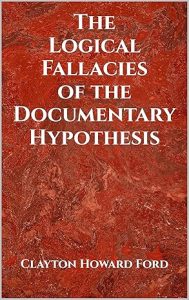“Therefore I say to you, every sin and blasphemy will be forgiven men, but the blasphemy against the Spirit will not be forgiven men. Anyone who speaks a word against the Son of Man, it will be forgiven him; but whoever speaks against the Holy Spirit, it will not be forgiven him, either in this age or in the age to come” (Matt. 12:31-32).
The primary subject of these verses is the blasphemy of the Holy Spirit, also known as the unforgivable sin, since Jesus said that this was the one sin that would not be forgiven. There are four views on what the blasphemy of the Holy Spirit is:
- You permanently reject the testimony of the Holy Spirit concerning Jesus Christ. This is blasphemy because in essence you are calling the Holy Spirit a liar.
- The work of the Holy Spirit is to lead you to Jesus Christ. Hence, you blaspheme the Holy Spirit when you die without receiving Jesus Christ as your Savior.
- We do not know what the blasphemy of the Holy Spirit is since Jesus did not specify what it is.
- You blaspheme the Holy Spirit when you say (out of an evil heart, not out of ignorance) that the work of the Holy Spirit is in fact the work of Satan or of a demon.
As we study this passage, we will determine which of these views is correct. However, let me say up front that this is not a salvation issue. You will not lose your salvation if you believe any of these views.
Before we get into the study, let me say this about view number 1. That view is based on John 15:26: “But when the Helper comes, whom I shall send to you from the Father, the Spirit of truth who proceeds from the Father, He will testify of Me.” But John is also the one who said that if we do not believe in Jesus, we are rejecting the testimony, not of the Holy Spirit, but of the Father and we are calling the Father a liar (1 John 5:9-12). That is because the testimony which the Holy Spirit gives of Jesus came from the Father. So those who reject the testimony of the Holy Spirit are not blaspheming the Spirit but the Father. And Jesus said that every blasphemy (including blasphemy of the Father) will be forgiven.
Let us begin with verse 31. Jesus said, “Every sin and blasphemy will be forgiven men,” which raises the question, “When are sins forgiven: before or after death?” Heb. 9:27 says, “It is appointed for men to die once, but after this the judgment.” Rev. 20:13 says that the unbelieving dead will be judged according to their works on Judgment Day. If God says to a man on Judgment Day, “You are guilty of murder,” can that man then say, “You’re right, God. What I did was wrong. Will you forgive me?” No. Once a person dies, all unforgiven sins become unforgivable. Sins can be forgiven only before death.
So, if a person commits the blasphemy of the Holy Spirit when he or she dies, why would Jesus single that one sin out as unforgivable if all sins become unforgivable upon death? What he is saying is that the blasphemy of the Holy Spirit is the one sin that becomes unforgivable before we die.
To better understand what the blasphemy of the Holy Spirit is, we need to know the definition of blasphemy. The Greek word for blasphemy in verse 31 is blasphemia (bla-sfā-mē’-a), from which we get our English word. It is ultimately derived from a combination of two other Greek words: blapto, which means “to injure,” and pheme (fā’-mā), from which we get our word “fame” and which means “news, report.” So blasphemia literally means “an injurious report.” Thayer’s Greek Lexicon defines it as “slander, speech injurious to another’s good name.” It is possible to blaspheme (speak slanderously against) beings other than God (which is what Michael the archangel refused to do concerning Satan in Jude 9), but in the New Testament, blasphemy is usually directed to God.
The point is that blasphemy is spoken. In verse 32, Jesus says, “Anyone who speaks a word against the Son of Man, it will be forgiven him; but whoever speaks against the Holy Spirit, it will not be forgiven him.” Blasphemy of the Holy Spirit is speaking against the Holy Spirit.
When we place verses 31 and 32 in context and look at what follows (verses 33-37), we see that Jesus is still talking about speaking. He calls the Pharisees a “brood of vipers,” and then says, “How can you, being evil, speak good things? For out of the abundance of the heart the mouth speaks.” We must remember that verses 31 and 32 are part of a speech Jesus gives in verses 25-37. And what prompted that speech? The Pharisees said something.
Most of this story is repeated in Luke 11:14-26. Luke left out the part about the blasphemy of the Holy Spirit, but, according to Luke, Jesus did bring it up later, in Luke 12:1-12. Notice that in the context Jesus is again talking about speaking (“whoever confesses Me,” “anyone who speaks a word against the Son of Man,” “do not worry about…what you should say”). Blasphemy of the Holy Spirit is spoken.
So what did the Pharisees say that prompted Jesus’ speech in Matthew 12? In v. 22, Jesus healed a blind and mute man who was demon-possessed, presumably by casting the demon out. The multitudes in v. 23 offered an explanation for this miracle: “Could this be the Son of David?” The Pharisees could not accept this, so they offered an alternative explanation, in essence an argument to refute the multitudes’ explanation: “This fellow does not cast out demons except by Beelzebub, the ruler of the demons.” Jesus cast out the demon by the power of the Holy Spirit, but what the Pharisees said was that Jesus actually cast out the demon by the power of Satan. This is what prompted Jesus’ speech.
Jesus’ speech consists of five rebuttals to the Pharisees’ argument. The first rebuttal is, if I am casting demons out by the power of Satan, then Satan’s kingdom is divided, which means it cannot stand.
The second rebuttal is, if I am casting demons out by the power of Satan, then your exorcists must be casting demons out by Satan’s power as well.
The third rebuttal is, “if (a better translation would be “since”) I cast out demons by the Spirit of God, surely the kingdom of God has come upon you.” In other words, the fact that I am casting demons out by the power of the Spirit is evidence that you are witnessing, not Satan warring against his own kingdom, but the kingdom of God warring against Satan’s kingdom (v. 28). And I could not have cast out this demon unless I had first overcome “the strong man,” Satan himself (v. 29), which means that I am winning. So you had better join my side (v. 30) because if you are not with me, then you are against me.
The fourth rebuttal is, “Therefore,” since all of the above is true, since I am in fact casting the demons out by the power of the Holy Spirit, you had better be careful what you say, because if you pursue this line of argumentation, you will blaspheme the Holy Spirit, which is unforgivable. You can say what you want against me, but don’t you dare blaspheme the Holy Spirit.
The fifth rebuttal is, your argument comes from an evil heart. So repent, because you will be judged for everything you say.
In context, therefore, Jesus brings up the subject of the blasphemy of the Holy Spirit because he is answering the Pharisees’ argument that he is casting out demons by the power of Satan. Mark also records this argument between the Pharisees and Jesus in Mark 3:22-30 and he specifically says that Jesus brought up the subject of the blasphemy of the Holy Spirit “because they said, ‘He has an unclean spirit.’” So view 4 is the correct understanding of what the blasphemy of the Holy Spirit is.
This means that when the Holy Spirit performs a miracle, a blasphemer would say that the miracle was performed by Satan. A born-again Christian who is filled with the Holy Spirit would not blaspheme the Holy Spirit. Only a person with an evil heart who is in outright rebellion against God (like the Pharisees) would be capable of doing this. But this is also why we do not want an evil heart of unbelief to rise up within us or in our fellow believers (Heb. 3:12-13). We want to stay as far away from this as we can.









Boom! I totally get it. It makes sense and I was originally with option 1. It might not make you lose your salvation but in terms of explaining or “warning” others, it’s good to have it right first in your own head and then let God do the rest/ talking (or action).